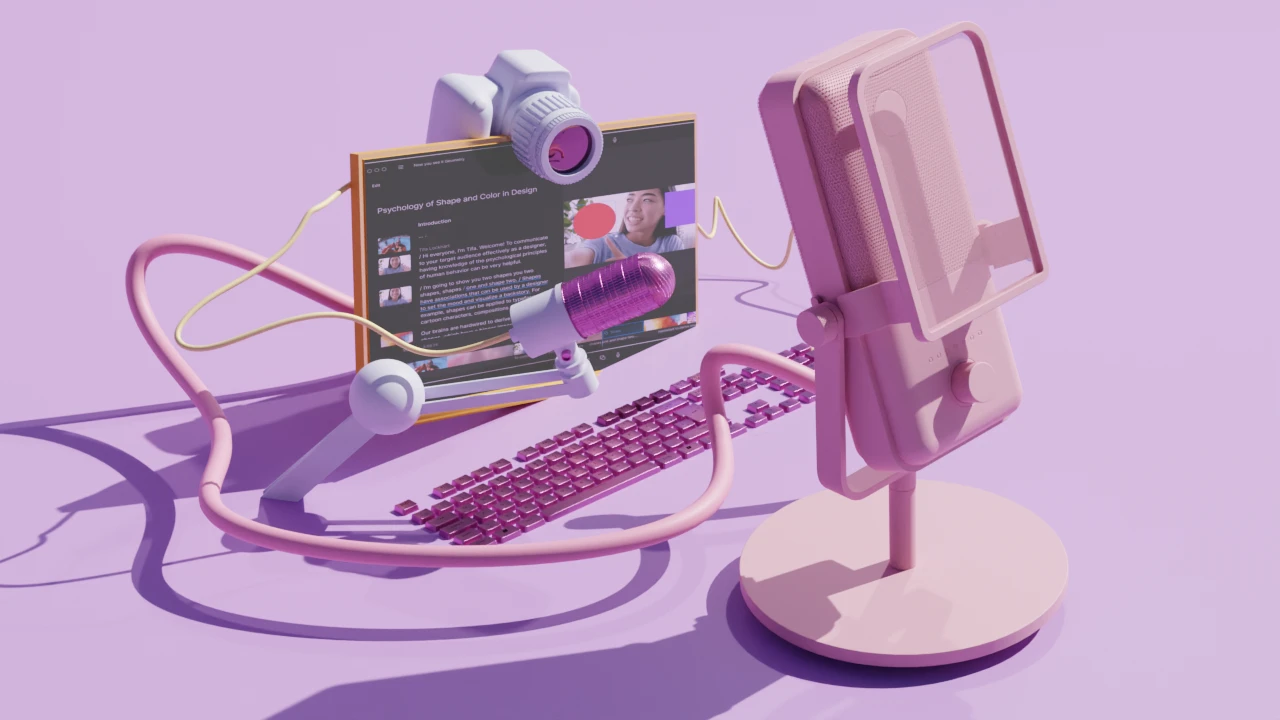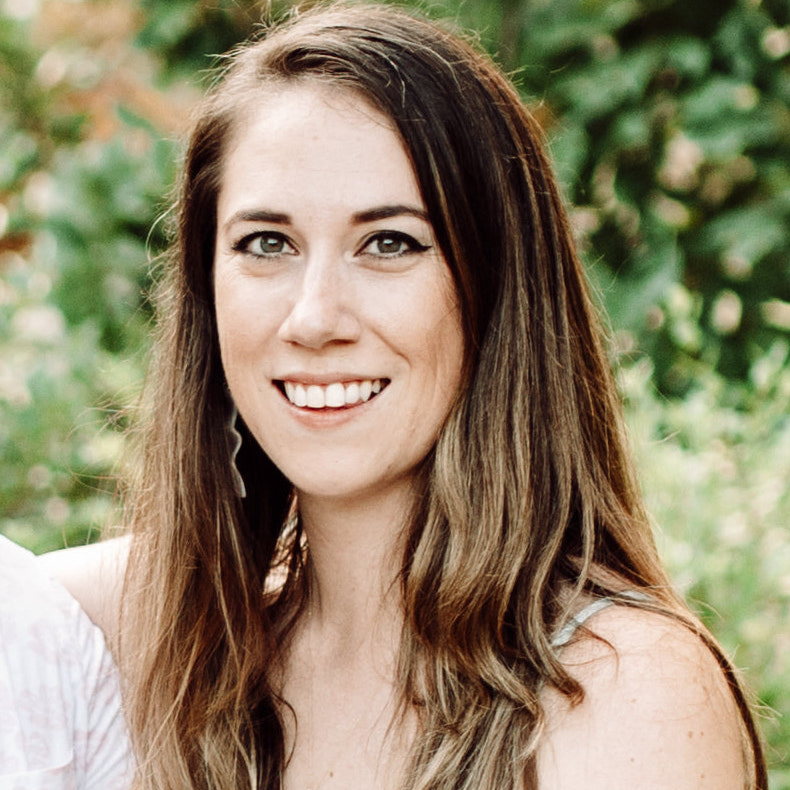Whether you make podcasts, videos, or anything else for the internet, you probably aren’t just making that thing. Chances are you’re also spreading the word on social media, maybe doing interviews to promote your show.
You’re trying to get an audience to care about your content, and if you succeed, something a little strange happens: you become a brand. Your audience associates you with your content, even sees you as its living extension. You’re not just you — in their eyes, you are your show.
Which is complicated, because while it’s important for every show to have a clear, consistent brand, it’s tougher to be clear and consistent as a normal, imperfect, real-life person.
Two people who know this dilemma well are Kate Spencer and Doree Shafrir, who co-host a podcast called Forever 35. The show focuses on self-care, which means that the two bring a lot of their personal lives to the microphone when they go to record an episode. “I talk about my butt all the time,” Kate admits, laughing. “I forget people are listening.”
That level of intimacy can blur the lines for listeners who don’t know the hosts IRL, and create what’s called a parasocial relationship: a sense that you know someone you’ve only ever seen on YouTube or heard coming through your headphones.
Giving your audience what they expect from your brand — being accessible, consistent, and always on — can be super difficult for creators. And because your audience is everything — including the source of your income as a creator — it can be especially hard to figure out which expectations are reasonable, and which are okay to ignore. So we asked Kate and Doree to share their best tips for navigating the relationship between a public brand and a private life.
Find a creative partner you can trust
One of the reasons listeners love Forever 35 is because it feels like listening to a smart, funny, no-BS conversation between friends. That’s the kind of brand identity you want. But it’s also the kind of brand that can easily slide into personally uncomfortable territory. So on a show like that it’s important to work with someone who you can talk to freely in the moment — but who also understands what should and shouldn’t be edited out.
“The nice thing with Doree is that I feel like she's an extension of my brain,” Kate says. “She knows me well enough — and I think I know her well enough — that we can kind of both pick up on a moment that the other might not want in.”
That includes moments that might be off-brand, and moments that might be on-brand but personally sensitive or controversial. Of course, Forever 35’s format comes with a built-in partnership, but if you’re working solo you might try to find a colleague or a friend to discuss with instead.
Be open to (constructive) criticism
But no matter who you’re working with, you’ll inevitably publish something you’re not 100% proud of — and the commenters will be all over it. It’s tempting to write off every cranky comment as just some internet troll trying to make your day worse. But if you block out everything that stings, you’ll also be missing out on critiques that might help you grow as a creator and person.
“But sometimes you have to step back and be like, okay, this person does sound like an asshole, but maybe they do have a point,” Doree says.
Of course, sometimes they don’t have anything remotely constructive to say, which leads us to our next tip.
Set boundaries around social media
It may be tempting to try to control every aspect of your brand personally; to address every critique and respond to every bit of praise in real time. But identifying too closely with the person your audience perceives you to be can take you out of the reality of your day-to-day life, and leave friends and family who depend on you feeling like you’ve been sucked into the vortex of the internet.
Maybe you’re the kind of person who can just put their phone down and walk away, but for the rest of us, it can be helpful to have some backstops in place. “It can be as simple as shutting off comments or not letting people tag you on Instagram,” Kate says. Modulating the noise on your feed can be a helpful reminder that these people don’t know you — and you don’t know them.
If that feels helpful, you might also look into having someone else manage your social media entirely. Kate compares hiring her own social media manager to “an expense that was like therapy”: something that helped her keep her head on straight so she could do her job and also be available for the people who needed her most — in her case, her husband and kids.
Kate hasn’t abandoned the internet entirely — “I'm still very much online and on Instagram and responding to people,” she says. But there’s someone she can rely on to do the brunt of the scrolling, reading, and scheduling so that her socials stay active without taking over her life. Basically, just remember: the internet is always on, but you don’t have to be.
Know what you value
Early on in the life of Forever 35, some listeners started writing in asking Doree and Kate to interview women with conservative political beliefs or, barring that, stop talking about politics on the show. This was supposed to be a podcast about self-care, the listeners said. What did discussions of things like race and class have to do with face masks and lipstick?
It can be tempting to go for the middle road on issues like this — to try to be as broadly palatable as possible. That’s what brands usually do. But ultimately, for Kate and Doree, leaving their political beliefs out of the show felt like it would compromise their vision, and their morals. Brand be damned.
“I have learned so much about self-care over the course of doing this podcast, and how it is intersectional with race, class, and gender; you can't have these conversations without addressing those things,” Kate says. “And also, now that we have this platform, we're gonna use it for the things that we believe in. I feel very unapologetic about that.”
You don’t need to share every single one of your opinions with your audience. But if something is important enough to you, stick to your guns and say it out loud. At the end of the day, feeling right with yourself is more important than pleasing everyone in the world.
Don’t be afraid to change
Before Forever 35, Doree and her husband Matt started a podcast called Matt and Doree’s Eggcellent Adventure, which documented their struggles with infertility. It attracted a deeply dedicated community of listeners, many of whom had had similar experiences and were relieved to find a group of people to commiserate and find solace with.
Which was why it came as such a shock when Doree got pregnant through IVF in 2018. “At some point I started realizing that some people were following along like Matt and I were just characters in the story,” Doree says. “And so when the story didn't go somewhere that they wanted it to go, they got very frustrated. There were people who emailed and said, ‘I can’t believe you got pregnant. I thought we were on this journey together!’”
She could empathize — as someone who struggled with infertility for a long time, she knew how devastating it could feel when someone else got pregnant. It forced Doree to reckon with whether she and Matt should end the show in deference to that segment’s discomfort, or whether they were allowed to keep it going and talk about what it felt like to finally be pregnant after all of that waiting.
Ultimately, “It was my journey,” Doree says, and she wasn’t going to change what she was doing, which was talking honestly about her experiences. Her brand didn’t have to be solely focused on infertility; it was allowed to change and grow with her.
Life very often takes us in unexpected directions; just think about how many momfluencers have had to admit their marriages were difficult, or over. When your reality doesn’t match up with the image you’ve been projecting, you have to decide what you want for yourself IRL, and then figure out how to tell your audience about it. If they want to follow along, amazing! And if they don’t, trust that your new direction will attract new people who are aligned with where you are, instead of what you were.
It will always be a work in progress
Both Kate and Doree acknowledge that their thinking around these issues is continually in flux. The relationship between audience and creator is a delicate one. When talking about boundaries, “I think we always worry about coming off as entitled, or ungrateful,” Doree says. After all, her audience’s affinity for her and Kate is what their advertisers are paying for.
So they’re sympathetic to fans who want more from them. “It's such an intimate medium, especially when a podcast is conversational,” Kate says. ”And it can be really hard to understand that this is someone’s job.”
“I think ultimately we're all striving for authenticity, but it is still somewhat transactional,” she continues. “It’s a dance, finding your comfort and the balance with it. I'm still figuring it out myself.”






%20(1).JPG)





































